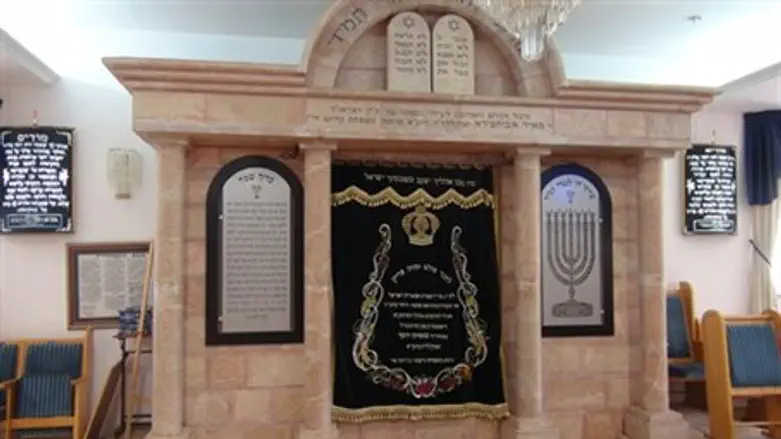
A Torah reading was prevented on Thursday at the Ashkenazi synagogue “Bnei HaYeshivot” in Kiryat Yearim solely because the cantor prayed with a Sephardic accent, reports Kikar Hashabbat.
According to one of the worshipers, dozens of yeshiva students and others assembled to pray but no one agreed to lead the prayers except for a Sephardi young man.
Since those praying were comprised of mostly Ashkenazi Jews, and the synagogue is Ashkenazi, the young man prayed according to the Ashkenazi version of the service, which differs in much of the wording and sentence structure, but not in substance, from the Sephardi (called Edot Hamizrach) .
Despite the young man’s efforts, the gabbai (sexton, person who assists in the running of synagogue services) was not satisfied and quickly rushed to close and lock the Aron Kodesh (Ark which contains the Torah scrolls).
“This is not about Sephardim and Ashkenazim, it is about the longstanding custom here,” said the gabbai to Kikar Hashabbat. “It does not matter whether the cantor is Ashkenazi, Sephardic, Yemenite or Moroccan – the main thing is to pray according to the predetermined wording and pronunciation.”
Leaving about forty worshipers unable to hear the Torah reading towards the end of the service, the gabbai said that “if they will find a cantor that agrees to pray with the wording and pronunciation of an Ashkenazi, I will reopen the ark."
"I want to clarify again that it is not a racial issue, I respect Sephardim,” said the gabbai. "What happened is that they did not contact me. I understood that they then went to pray at the Sephardi synagogue."
“I try to get along with everyone, I'm just doing my job which is to uphold the regulations. In the past, the rabbi of the synagogue also closed the Ark because regulations were not being maintained.”
The Sephardic pronunciation is used in everyday Hebrew by Israelis. Ashkenazic pronunciation, with variations depending on which Eastern European, American, English, Dutch or German country is the origin of the worshiper, has certain constants which do not appear in the Sephardic. The "Taf" is pronounced "Saf", for example, by Ashkenazim, so that the prayers sound very different. Within the Ashkenazi service, there are two types of service, one called Ashkenazi and one called Sephardi of Ashkenazim.